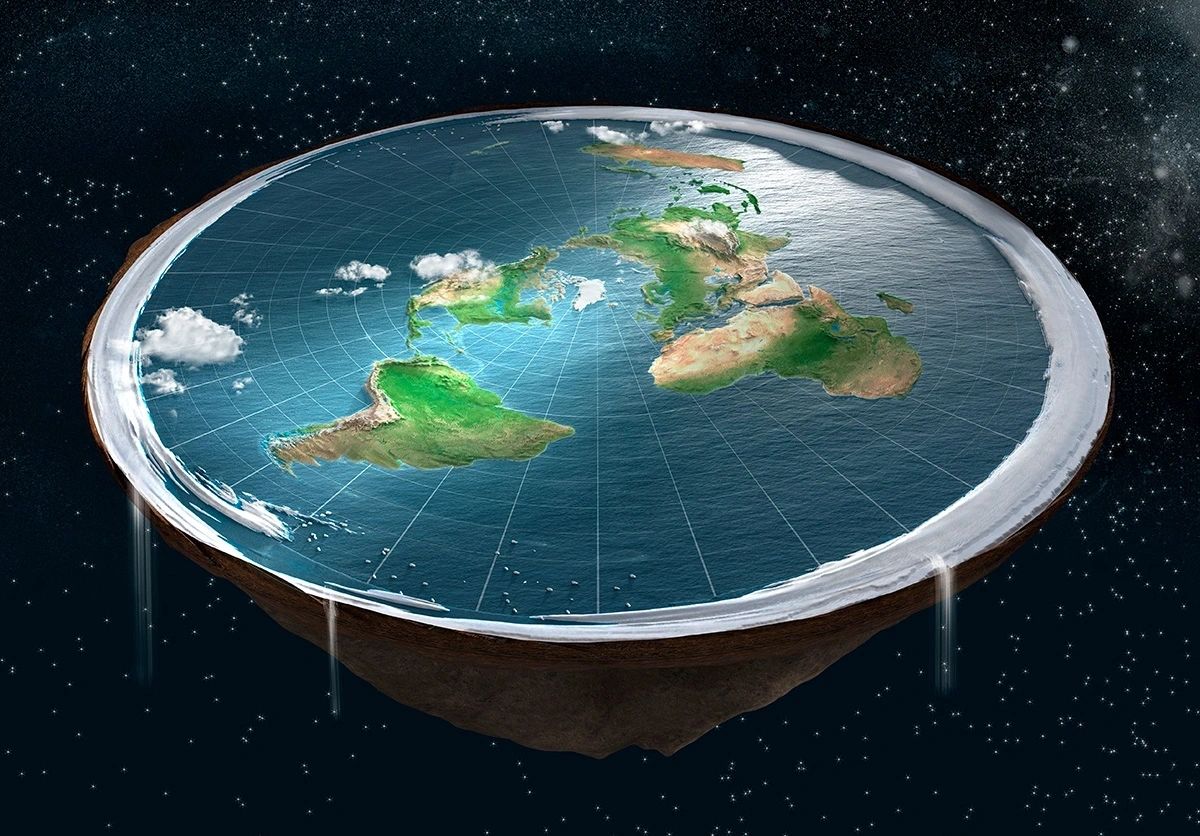These are troubling times.
We are just so divided, on well, everything. As I scroll through my social feeds, I notice everything from anti-vaxxers to anti-truckers, and a bunch of folks just fighting.
I’m reminded of bland but likable Will Bailey’s impassioned line from the West Wing. Annoyed with Josh Lyman’s lack of support around the Vice President, he asserts, “Get in line, or get out of my way.” Fighting words, as this very sentence jarred Josh into action to find another candidate who would ultimately win the presidency, unleashing an enemy with his message: you’re with me or you’re against me.
Humans are remarkably social creatures, evolved from our earliest days where being outside of the tribe invariably meant death. Our desire is innate – we need to belong, to be part of the group, to not feel alone. So, what is driving our division?
To help understand, I decided to jump down a rabbit hole. And, as rabbit holes go, this one’s a doozy: I set out to explore Flat Earthers.
My experience with Flat Earthers is notably limited. Until recently, I thought they were fiction. Occasionally, I see a funny meme or my most acerbic friend makes a cutting Facebook post, but I assumed it must all be in jest. Even my father, who for the most part leans liberal, is convinced this group is faking their beliefs for notoriety.
Surprisingly, after only light googling, I found that there is indeed a growing group of seemingly intelligent, professional, not necessarily religious people that ardently believe our planet is alone in the universe.
In fact, there isn’t a universe, but simply a flat, roundish earth, where all continents are close together, and the entire world is surrounded by an icy wall (Antarctica).
I cannot recall the moment I began to believe the earth was round – perhaps it was the globe my parents kept in our dining room, or the movie ET, which premiered when I was five.
My evidence is somewhat limited – I have traveled, experienced time zones, and grew up near the sea, where the idea of boats disappearing into the horizon is an image so vivid, I can’t muster up a single individual memory. And on one blissful summer evening in Santorini, I watched the horizon swallow the sun.
Could my beliefs be wrong?
The rockstar of Flat Earthers is Mark Sargent, a charismatic YouTuber, most notably a part of Netflix’s documentary Behind the Dome. Other players include NBAer Kyrie Irving and rapper BoB.
Behind the Dome mostly follows Sargent and other like-minded members through a series of interviews, leading up to their annual conference, where Flat Earthers gather to discuss the vast conspiracy spanning governments, monarchies, and the business elite.
While Flat Earthers do not boast educators or scientists (this group couldn’t possibly admit their beliefs openly, we’re told), its membership does include a group of engineers that conduct lengthy and expensive experiments in the documentary.
Unfortunately, their experiments consistently prove – as shown perhaps not accidentally in the Netflix piece – that the Earth is not flat.
I did not end up a Flat Earth convert, and this odd culture left me as confused as ever. While the allure of the conspiracy is tempting, surely there are more compelling and less proven mysteries? Seriously Flat Earthers, what gives?
“It seems that increasingly, people don’t trust scientists and experts or their motives,” said social psychologist Karen Douglas in a 2019 CNN article on Flat Earthers, an eery observation given our current post-COVID realities. Is it fear that drives the fervor?
Possibly, as there’s something to be said about the idea that we are at the center of it all, where there is only us. This helps diminish our fears of the unknown, giving us a sense of control in a no longer infinite universe. Perhaps that’s it?
Or is it something more basic? Brene Brown writes in her book Braving the Wilderness of our intrinsic desire to belong to something larger than ourselves. There’s a fundamental need to be part of the collective: a community that experiences joy, pain, anger, and understanding together. Think the highs of watching a Canadian athlete win a gold medal, or the lows when the Leafs lose again.
Committing to the Flat Earth doctrine is quite a task, as members talk of losing spouses, families, friends, and their careers. For those already feeling adrift, the call of a non-judgemental community may be the elixir needed in our increasingly disjointed world: a community that welcomes all, as long as you’re not NASA or Neil DeGrasse Tyson.
In the final minutes of Behind the Dome, several conference presenters talk about their loneliness, the sense that they always felt different, and never truly fit in. As Sargent describes the event as an “outlet for a lot of people that might otherwise get ostracized by friends and family and co-workers. When they come here, they know it’s absolutely a safe space.”
More to the point, where does this experiment leave me? While my belief in the Earth’s roundness remains, my understanding of a population whose opinion differs from mine has increased, and along with it, my empathy. I applaud their (arguably) misguided theory without (too much) judgment.
As I delve inward, I see how it’s possible to both disagree with their views yet respect their ability to hold them – particularly when I think of times when I felt like a misunderstood misfit.
Instead of Will Bailey’s fighting words, perhaps we can be neither with you nor against you. Perhaps we can each walk side by side, feeling differently, but living collectively as part of our larger community.
So, the Flat Earthers, and all the rest that sits outside my worldview, I wish you well.


